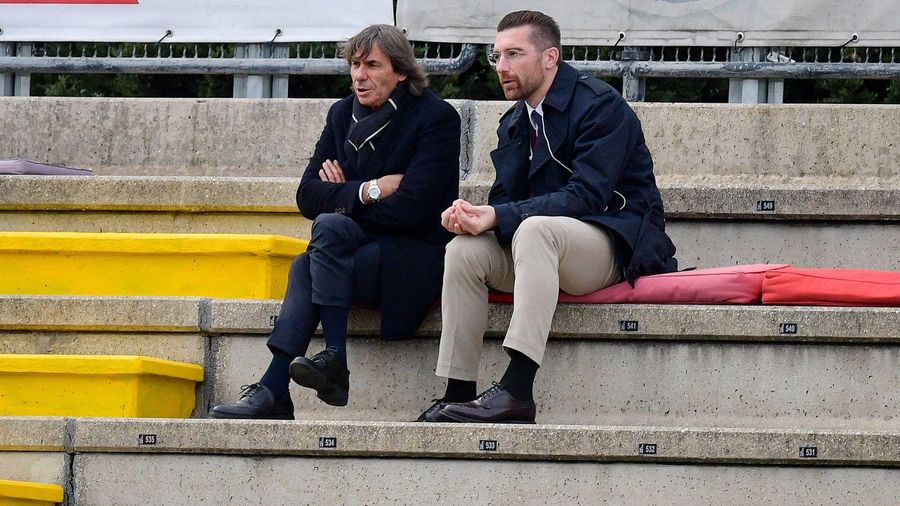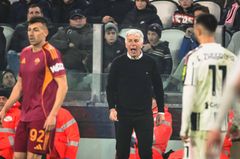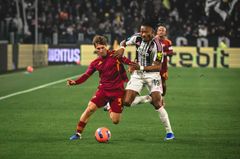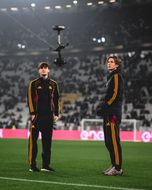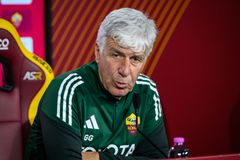
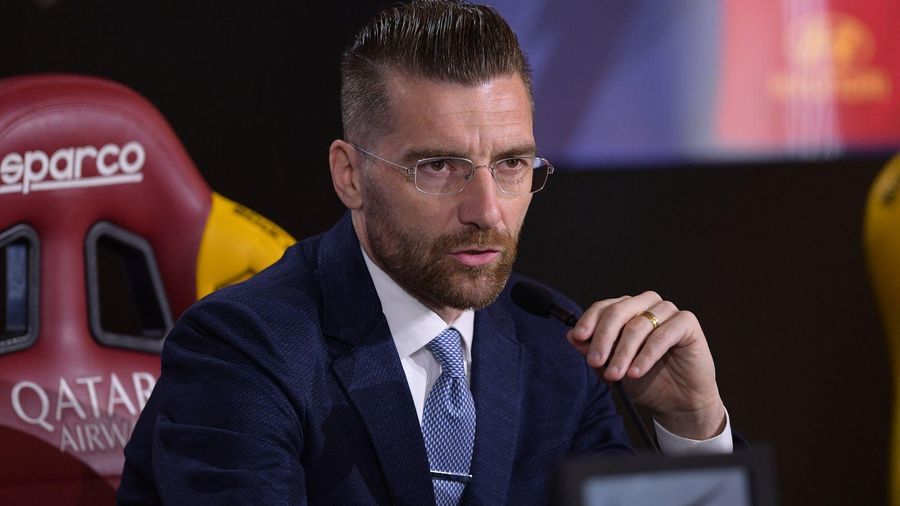
This season it's not just the first-team that have been flying: before the season was suspended due to the escalating Covid-19 pandemic, the club's Primavera had won all six of their league fixtures.
With five of those Primavera (the Under-19 age group )players recently signing long-term contract extensions with the Giallorossi, and a number of them also making first-team debuts in recent weeks, the work done by everyone within the club's academy appears to be paying off.
We spoke to club director Morgan De Sanctis - who also represented the club as a player, towards the end of an illustrious career as a goalkeeper - about the hard work that has been going on behind the scenes in recent months, and the approach the club has taken to developing talents for the first team.
Five contract extensions for Primavera players in almost as many days this month – what sort of message does that send?
“It sends the message that the club believes in its young players, that it intends to invest in the most exciting prospects and that it wants to go about that in the right manner.
“Our strategy involves a wage scale, shaped by new parameters, that is based on the achievements of the players: we have had those discussions with those who represent these boys, both agents and their families. But, ultimately, we shouldn’t forget that these contract extensions are the reward for the hard work the boys themselves have put in for their teams.
How disappointing is it that the Primavera season has been suspended?
“Putting to one side the fact that we are in the middle of a pandemic that means we all have to adjust accordingly, the suspension of the Primavera season is nevertheless frustrating – as it is for all the championships throughout the youth sector.
“It’s a decision that is going to affect the kids – we are cutting their hours in training, as we are for a generation of young players.
“It makes sense that the professional leagues (Serie A, Serie B, Lega Pro) continue to play, along with the women’s Serie A, but if we look at the value, both economically and culturally, of the Primavera 1 and 2 leagues then we can only be surprised that the decision was taken to stop them.
“So many clubs make their young players follow the same measures and protocols that the first-team have adopted during this period, and so I would have expected a bit more consideration and sense in that regard. It would have been sufficient to agree an identical protocol for the Primavera, which certainly has a national relevance on a par with other leagues that continue to play.”
Six wins from six to start the campaign – how pleased have you been with Alberto De Rossi’s team during the season so far?
“This year the Primavera have started the season really well. At the start we were pretty confident that we had put together a competitive side. We were especially confident in one particular aspect: that we had players, especially in a unique season like this one, that could end up being useful in emergencies for the first-team too.
“What we have seen so far, however, goes even beyond the greatest hopes we had. The team has deserved to win all six of its matches so far – and has shown its quality both as a group and in terms of individual talent.”
How important is teamwork within the club’s youth sector?
“The work the academy does is built on the idea of creating players that could end up being capable of graduating to the first-team, and that goes from the Under-10s to the Under-19s. For the Primavera especially, they work on the same technical and tactical ideas that Paulo Fonseca puts into practice with the first-team.
“The strengthening of Under-19s this summer, by adding players that were mostly born in 2002, was done with two principles in mind: to make the Primavera side better, and then to add players capable of potentially taking any opportunities that arise with the first team.
“This work, to identify and integrate new players, was done with a specific budget that was agreed, based on a number of guidelines, with the new ownership.
“As far as the Primavera goes we added five players this season – when there are specific needs to be filled, as there were this summer, then we identify and then try to acquire the right profiles to do that.
“Nevertheless, the ideal Roma project remains the same: to take advantage of the enormous well of talent that exists in the local area, and then adding to that only with additions that we think represent unmissable opportunities for the club.”
A number of players have joined from renowned clubs around Europe – is that an example of how the club will continue to operate with youth players in the future?
“Targeting foreign talent isn’t a cornerstone of our strategy. There are national and international rules that the club’s sports department has to react to, however. This year, for example, we decided to make some moves within the Under-15 group, because it was the last opportunity to develop Italian prospects before the introduction of the five-year residence.
“From Under-16s onwards, meanwhile, we are looking at the overseas market, to take advantage of any opportunities that may arise.”
How do you intend to work to find players within the city?
“Thanks to the experience of Bruno Conti, we are reviving a scouting and development system around the capital, which we hope will allow us to continue to identify the very best players. Players from other parts of Italy or overseas will still join, that’s normal, but it is our duty to make the most of the area in which we are based – an area that has traditionally been a hotbed for talent.
“In that regard, Croatia can be taken as an example – they have a really competitive national team, finalists at the last World Cup, yet as a country they have fewer inhabitants than there are in the greater Rome area.
“We also have an extra weapon, which is our scouts: seven of them dedicated to the Youth Area (U17-U19), and 20 focused on the Young Area (U10-U16). Not many clubs have resources like that, which allow us to keep our eyes on a number of different areas.”
Personally speaking, do you miss being in the changing room and out on the pitch?
“To tell you the truth, no. I am really pleased with the decision I took to stop playing, despite the fact I still had a year left on my contract with Monaco at the time. I made that decision because I had already got everything I could have hoped for out of playing the game.
“I am obsessed with football and I thought a lot about what I would do after my playing career. That all became clearer when Roma rang me again. I was really sad when I left the club before, and when they called I knew it was the right choice for me to return to the game in a different capacity.”
What was the first thing you thought when you decided it was time to stop playing?
“When you stop, as much as you can realise that the life of a footballer has to end and that you need to start a new chapter, you still struggle to get to grips with all the changes that happen. I think when I stop I finally understood what so many of my former teammates went through.
“When you are playing everything revolves around you; you only have to focus for two or three hours a day and then you have free time to spend with your family or on your hobbies, while staying fit and ready. I overcame my sense of loss by throwing myself into working out what my new role in football would be, and thus studying and preparing for that.”
How did you get from that point to where you are now?
“First of all I was the Team Manager, where I realised just how complicated the game of football can be outside the four white lines. Along with that I did my coaching badges; UEFA B, UEFA A and UEFA Pro. Following that I qualified as a sporting director and youth academy director too.”
Why did you decide against becoming a coach?
“While I was doing the various courses I tried to identify exactly which role I would be most suited to, as a sporting director or a coach. On the pitch and in the changing room, you need to be a authoritative and commanding figure with your players. I think as a coach I would probably be too demanding and authoritative.
“Being behind a desk allows me to continue to be so obsessive, but I can think about my words and better organise my thoughts and benefit from having the coach in between as a filter.”

 Tickets
Tickets
 Shop
Shop













